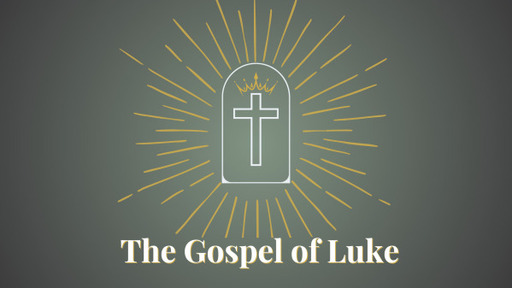Authority of Jesus

Authority of Jesus
Authority in Teaching
Authority over Demons
Authority over All
When at the break of day Jesus departs, the crowd follows and tries to keep him in Capernaum. Yet again Jesus speaks of his mission: “I must preach the good news of the kingdom of God to the other towns.” This is why Jesus has been sent. The content of this kingdom message is seen in what Luke has already supplied (4:16–30): Jesus fulfills the promise. When John the Baptist raises the question again later, Jesus’ answer points to such fulfillment (7:18–23). Jesus does not proclaim who he is; he lets events explain who he is. For him, actions speak louder than words. He is more than an ethical instructor or a psychologist; he has power to overcome the forces of evil that plague humanity. His ministry is not designed for a little corner, but it extends far and wide to take the message out to others. So Jesus takes his message and ministry to the other synagogues of Galilee.
That storied day in Nazareth when he took up the scroll of Isaiah and read, “The Spirit of the Lord is on me, because he has anointed me to preach good news to the poor,” he was preaching the kingdom of God. His emphasis on the poor, the prisoners, the blind, and the oppressed was an implicit summary of the humble spiritual state of those to whom the kingdom comes. But Jesus’ insistence upon this sense of spiritual inadequacy so enraged the self-satisfied Nazareth congregation that they attempted to kill him.
This is the first mention of “the kingdom of God” in the Gospel of Luke, a phrase that will occur thirty-seven more times in that book. It means “Jesus’ activity in bringing salvation to men and the sphere which is thereby created” (Marshall). The kingdom had a past manifestation because God has always been sovereign, as Psalm 24:1 attests: “The earth is the LORD’S, and the fulness thereof; the world, and they that dwell therein” (KJV). And past saints are identified in Luke’s Gospel as part of the kingdom: “There will be weeping there, and gnashing of teeth, when you see Abraham, Isaac and Jacob and all the prophets in the kingdom of God, but you yourselves thrown out” (13:28). The kingdom of God was also present with Christ and is present in the lives of his spiritual children, as Jesus explained: “the kingdom of God is within you” (Luke 17:21). Lastly, of course, the kingdom is future (cf. Luke 11:2; 13:28, 29; 19:11; 21:31).
A full-blown concept of the kingdom includes: (1) the King (ruler), (2) the rule itself (sovereignty to rule), (3) the realm being ruled (this world), and (4) those ruled (individuals who believe the good news of Jesus Christ). In addition, some passages in the Gospels present the kingdom of God as already present in at least some senses (Mt 12:28) while others speak of it as being still future (Mt 6:10).
Wherever Christ went, the kingdom went. When men and women come to him in faith, the kingdom enters their hearts. All true believers are part of the kingdom to come.
Furthermore, praying “Your kingdom come” involves a commitment to do God’s will. Matthew’s record of the Lord’s Prayer expands this phrase: “Your kingdom come, your will be done on earth as it is in heaven” (6:10). To pray “Your kingdom come” is to pray for the bending of our wills in profound obedience to his. It is a commitment to consciously submit everything to his authority.
This is not a prayer for people who want to stay the way they are. When we pray like this, we hand ourselves over to the grace of God so that he may do as he pleases in our lives—“Your kingdom come in my life. Use me in your kingdom!”
Add to this the modern anti-authority malaise, the uniquely American worship of independence and individualism, the “Don’t tread on me,” “Security by Smith and Wesson” attitude, and we have a potent recipe for a profound inability to truly submit to any authority, even that of Christ himself. This is why so many moderns have no kingdom power. You cannot enjoy a kingdom unless you are submitted to the king.
Have you ever officially submitted everything to the rule of Christ? Your will—your future—your ambitions—your longings—your vocation—your spouse—your children—your independence—your heart? Why not do it now?
Your kingdom come, Lord Jesus!
Jesus is called not just to heal but to preach and teach the good news. to the other towns as well. Neither Nazareth nor Capernaum had “exclusive rights” to Jesus’ time and ministry (see vv. 25–27). Luke often refers to what must be, emphasizing the necessity of God’s providential plan being fulfilled. Preach … the kingdom of God is the first of 31 such references in Luke. “Kingdom” should be interpreted dynamically as “reign,” not statically as a territory (see Introduction: Key Themes). Jesus was sent by God.
